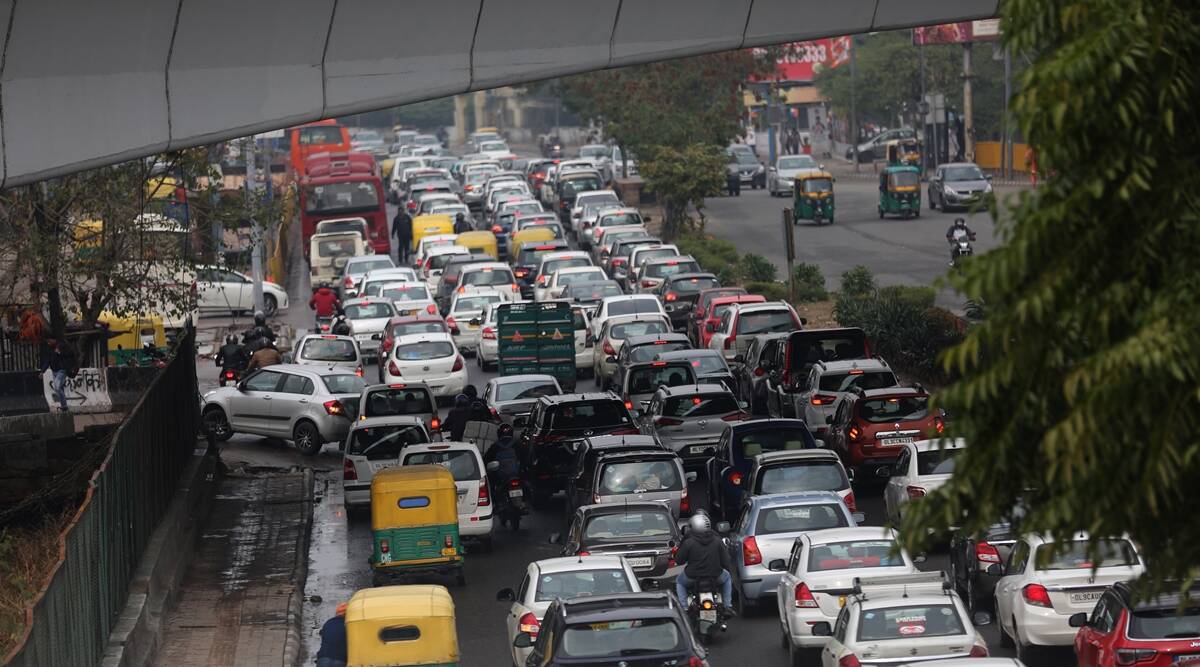Delhi’s new liquor policy has been at the centre of controversies ever since it came into effect, with the Opposition — the Bharatiya Janata Party (BJP) and the Congress — holding regular protests over it.
However, a new tussle has now emerged between the policy maker — the Aam Aadmi Party (AAP) government — and the license holders after the government placed a ban on discounts and rebates given by liquor shops, finding the decision arbitrary and against the policy. At least 17 alcohol companies have filed a petition against the government over the matter.
What does the new liquor policy say about discounts?
Under the new policy’s clause 3.5.1, all the L-72 licensees were permitted to give discounts, rebates and concessions on the MRP of liquor as fixed by the excise commissioner. According to the vendors, they paid excise duty upfront and 10 per cent extra, besides the license fee under the new policy, considering it would give them more leeway to operate.


Under the discounting scheme, while some retail vendors were allowed to give a one-plus-one (buy one get one free) offer and 40-50 per cent discounts, others were given permission for a two-plus-one (buy two get one free) offer and 40-50 per cent discount, among other concessions on the MRP.
According to the Confederation of Indian Alcoholic Beverage Companies (CIABC), discounts were proposed and permitted in the bidding process itself. The policy also proposed to start beer=vending machines and sale of liquor in tetra packs. Vendors say that the step to ban discounts may have reduced crowds but hasn’t stopped anyone from drinking. They added that people have started going to Gurgaon for cheaper liquor.
Further, the city government also made several changes under this policy, from closing all government shops and paving a way for private sectors to take over the retailing in Delhi. It also introduced air-conditioned premium vends with a walk-in facility, similar to showrooms, but none have started yet. It also proposed to slash the age limit for drinking from 25 to 21 to bring it at par with neighbouring states. However, an official order is yet to come in this matter. The dry days were also reduced to only 3 from 21, like in Punjab and Haryana.
Why did the government ban discounts?
To stop overcrowding and long queues outside liquor shops, the Delhi government on February 28 issued an order to all the license holders to stop discounts, rebates and concessions given on the MRP. Recently, when the retail vendors license holders filed a petition against the government, the state counsel said that the discounts lead to a drinking problem in the city.
“It has been brought to notice of the department that as a result of the discounts being offered by the licenses through their retail vends, there are instances reported of large crowds gathering outside liquor shops leading to law and order problems and causing inconvenience to the local population of the area. It is also to be kept in mind that the covid situation is not over yet and danger of the covid still persists and therefore huge crowds are likely to aggravate the rise of covid cases in the city,” the order read.
The government added that discounting was also leading to an unhealthy market practice deployed purely for short-term business gains by some licensees, causing distortions in the market.
It stated that its intent on allowing discounts was to promote consumer choice and healthy competition, and not determination of price by market forces.
A senior Excise official said, “The government has rights to update, amend and make changes in the policy.” However, the sources added that changes have also been made in view of the upcoming Municipal Corporation of Delhi (MCD) elections as RWAs and people complained about crowding and opening of liquor shops in residential areas. The BJP and Congress have also upped the ante, making the new liquor policy a key agenda for their MCD poll campaign.
Why were traders giving such high discounts?
According to the vendors, they gave out the discounts to recover losses they faced during the lockdowns, when shops were shut for more than a month ahead of the new policy being implemented. They also said that the discounts helped them stop customers from buying liquor from neighbouring cities such as Gurgaon, where it is cheaper as compared to the national capital.
“We paid excise duty and had the right to give discounts. It helped boost our business in the last one month. Even in January, liquor shops were facing losses due to time restrictions owing to the Covid-related restrictions. The government has the right to make changes but when the licensees have paid crores, then it is ultimately their losses to bear. Before taking a step, they should have at least consulted them,” a retail vendor said.
According to sources, the discounts on liquor prices boosted the business of the liquor industry, and sales went up by almost 200 per cent.
Newsletter | Click to get the day’s best explainers in your inbox
!function(f,b,e,v,n,t,s)
{if(f.fbq)return;n=f.fbq=function(){n.callMethod?
n.callMethod.apply(n,arguments):n.queue.push(arguments)};
if(!f._fbq)f._fbq=n;n.push=n;n.loaded=!0;n.version=’2.0′;
n.queue=[];t=b.createElement(e);t.async=!0;
t.src=v;s=b.getElementsByTagName(e)[0];
s.parentNode.insertBefore(t,s)}(window, document,’script’,
‘https://connect.facebook.net/en_US/fbevents.js’);
fbq(‘init’, ‘444470064056909’);
fbq(‘track’, ‘PageView’);
.








